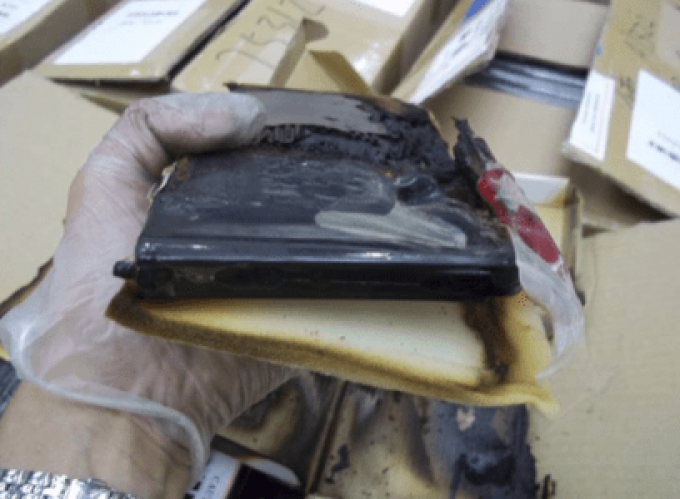Cargolux bans transport of disposable vapes from all flights
Cargolux has banned the transport of disposable electronic cigarettes, or vapes, on all its flights. The ...

Yesterday’s lobbying letter from various industrial groups, hoping to persuade the US not to ban lithium battery shipments on passenger planes, was just one volley in the latest battle between commercial pressure and safety concerns.
Crucially, the US National Transportation Safety Board issued two recommendations this week to the Department of Transport. It recommended that lithium batteries be physically separated from other flammable hazardous materials stowed on aircraft, and also to set maximum loading density requirements, which would limit the quantities of lithium batteries and flammable hazardous materials on board.
The DoT’s hazardous materials panel, PHMSA, normally cannot issue regulations or enforce requirements that are more restrictive than international regulations, but is able to if it finds credible evidence of a deficiency in the international regulations “that has substantially contributed to the start or spread of an on-board fire”.
The NTSB, working with Asiana on the Flight 991 accident, said it “strongly believes the circumstances and findings … show the need for new cargo segregation and loading density requirements.”
The move follows a safety alert on Tuesday from the Federal Aviation Authority to airlines, encouraging them to conduct thorough safety assessments. The FAA is also helping its own inspectors to identify whether airlines have adequately assessed the risk.
While shipments of lithium-metal batteries are banned on passenger aircraft, rechargeable lithium-ion batteries are not. Many airlines have independently banned them anyway, but a vote by ICAO’s dangerous goods panel last year was in favour of continuing to allow the shipments on passenger aircraft. However, last month another ICAO advisory panel said shipments should stop until new packaging is developed. ICAO’s Council must decide later this year.
IATA, which voted against the ban, said the problem was not properly manufactured and packaged batteries, but counterfeits with inaccurate documentation, which a ban would not change. It called on governments to impose harsher penalties on illegal shippers.
IATA also argued that the case differed for each airline. Some are heavily exposed to the lithium battery market, others rarely carry such shipments, meaning that their risk assessments would differ, and a blanket ban would be unnecessary. However, with Boeing, Airbus and the FAA all citing “significant risk”, IATA’s position is controversial, to say the least.
The Air Line Pilots Association this week also called on Congress to give the FAA more power to regulate lithium shipments.
“Lithium batteries pose a significant safety threat to air transportation,” said Mark Rogers, head of ALPA’s dangerous goods committee. “It’s important that the US not delegate its responsibility as a sovereign nation to an international body.
“The US should set an example and lead international efforts.”
Comment on this article
Rick Eyerdam
February 13, 2016 at 7:18 pmhttps://www.linkedin.com/pulse/lithium-battery-questions-rick-eyerdam